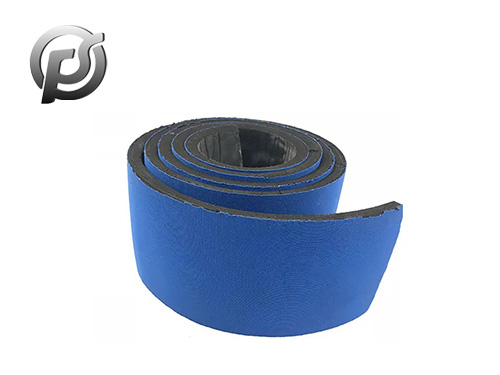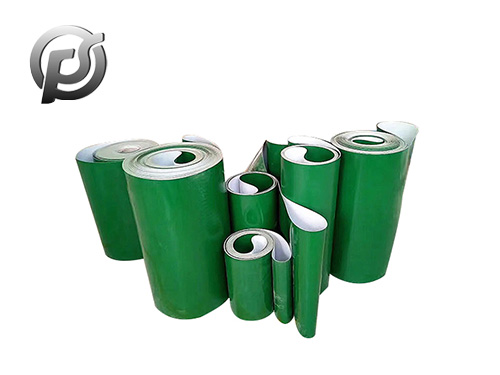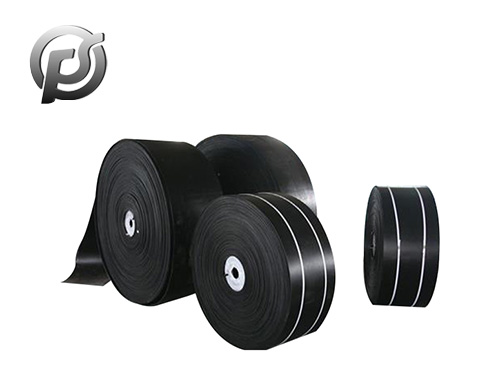Stone conveyor belts play a vital role in the efficient transportation of bulk materials, revolutionizing industries such as mining, construction, and agriculture. In this article, we explore the significance of
stone conveyor belts and their impact on improving efficiency and productivity in material handling operations.
Efficient Material Transportation:
Stone conveyor belts are designed to transport a wide range of materials, including aggregates, gravel, sand, and crushed stone, across various distances and terrains. Their robust construction and high tensile strength enable them to handle heavy loads and withstand harsh operating conditions, ensuring smooth and uninterrupted material flow.
Versatile Applications:
Stone conveyor belts find extensive applications in diverse industries, serving as an integral component of material handling systems. They are commonly used in quarries, mines, construction sites, and agricultural facilities for transporting bulk materials from one location to another. Additionally, conveyor belts are employed in processing plants, warehouses, and distribution centers for sorting, stacking, and stockpiling materials, enhancing operational efficiency and throughput.
Customized Solutions:
Conveyor belt manufacturers offer a wide range of customization options to meet the specific needs and requirements of different industries and applications. Stone conveyor belts can be tailored in terms of width, length, thickness, and material composition to accommodate varying load capacities, material types, and environmental conditions. Advanced features such as cleats, sidewalls, and chevron patterns are incorporated to improve grip and prevent material spillage during transportation.
Automation and Integration:
The integration of automation technologies with stone conveyor belts has revolutionized material handling processes, enhancing efficiency, accuracy, and safety. Automated conveyor systems utilize sensors, actuators, and control systems to regulate material flow, monitor performance, and optimize throughput. Integration with computerized systems, such as SCADA (Supervisory Control and Data Acquisition) or PLC (Programmable Logic Controller), enables real-time monitoring and remote operation of conveyor belts, reducing downtime and minimizing manual intervention.
Environmental Considerations:
Stone conveyor belts are designed with sustainability in mind, incorporating eco-friendly materials and energy-efficient technologies to minimize environmental impact. Manufacturers prioritize the use of recyclable materials and employ energy-efficient motors and drives to reduce power consumption. Additionally, conveyor belt systems are designed to minimize noise pollution and dust emissions, promoting a safer and healthier working environment for operators.
Continuous Innovation:
The stone conveyor belt industry is characterized by continuous innovation and technological advancements aimed at improving performance, reliability, and sustainability. Research and development efforts focus on enhancing conveyor belt materials, designs, and manufacturing processes to meet evolving industry demands and regulatory requirements. Emerging trends such as smart conveyor systems, predictive maintenance, and IoT (Internet of Things) integration are shaping the future of stone conveyor belt technology, driving further improvements in efficiency and productivity.
In conclusion, stone conveyor belts play a pivotal role in modern material handling operations, offering efficient, reliable, and versatile solutions for transporting bulk materials across various industries. With ongoing advancements in technology and a commitment to sustainability, conveyor belt manufacturers continue to push the boundaries of innovation, enabling organizations to optimize their material handling processes and achieve greater operational excellence.
 PE Conveyor Belts: Characteristics, Applications, and Advantages
PE Conveyor Belts: Characteristics, Applications, and Advantages
 Optimizing Operations with PE Conveyor Belts: Durability, Efficiency, and Versatility
Optimizing Operations with PE Conveyor Belts: Durability, Efficiency, and Versatility
 Exploring the Efficiency and Versatility of Light Conveyor Belts
Exploring the Efficiency and Versatility of Light Conveyor Belts